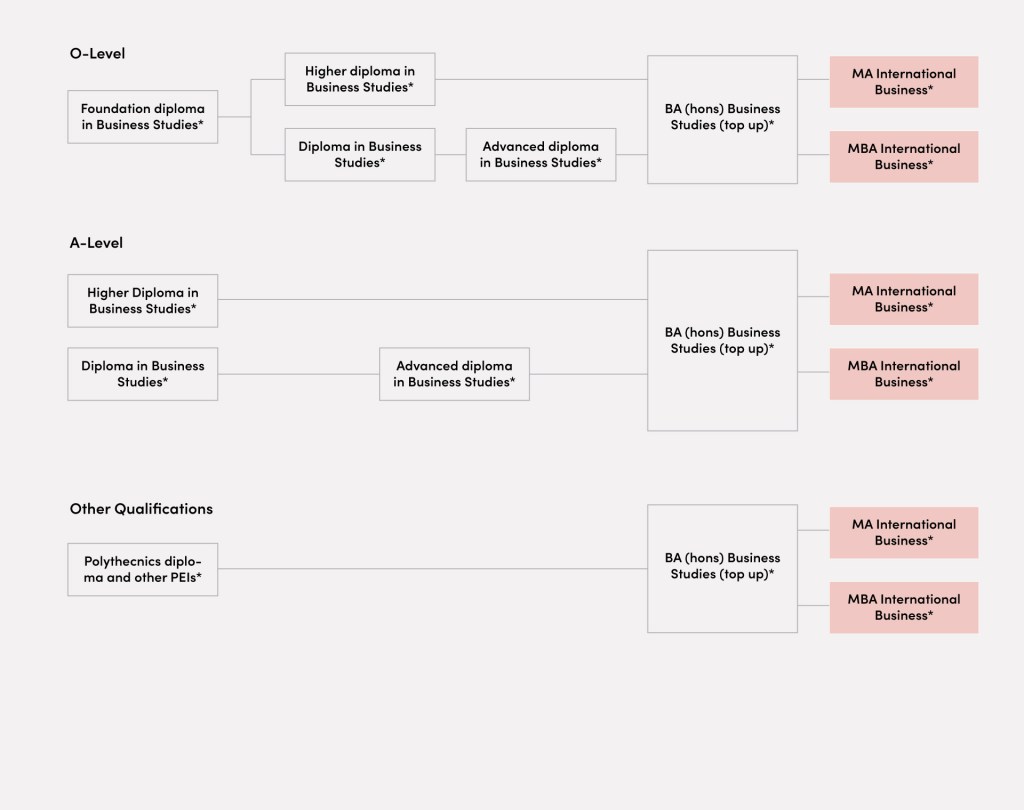
OVERVIEW
About This Programme

The Master of Business Administration (MBA) in International Business equips students with the skills and knowledge to excel in global business leadership. The programme combines strategic management principles with insights into international finance, entrepreneurship, and cross-cultural management, preparing graduates for senior roles in a dynamic global economy.
With a strong emphasis on practical application, students will explore topics such as global strategy, sustainability, and business innovation. The programme also includes a comprehensive research project, enabling students to apply their learning to real-world international business challenges. Upon completion, the MBA degree will be awarded by the University of Greenwich.
Ranked Top 7% Globally by Center for World University Rankings
Research Excellence Framework strong research quality across all subject areas
Guided career sessions
MODULES
Designed to explore beyond subject knowledge
The Master of Business Administration (MBA) in International Business offers a diverse and comprehensive curriculum designed to develop global business leaders. Modules such as Global Strategy: Analysis & Practice, Managing Across Cultures, and International Business Finance provide essential skills in strategy, leadership, and financial management in international contexts.
Graduates will refine their analytical and research capabilities through modules like Foundations of Scholarship & Research and the International Business Project. Practical insights are gained through modules such as International Entrepreneurship and Global Business & Sustainability, ensuring students are well-prepared for the complexities of international business environments.
Financial & Management Accounting
This module introduces non-specialists to core accounting and finance concepts, enabling them to critically evaluate company performance using publicly available information. It also explores internal systems and resources essential for achieving strategic goals.
Students will learn tools to assess company performance externally and apply internally accessible data to drive organisational success, providing a comprehensive understanding of accounting’s role in strategic decision-making.
Global Strategy: Analysis & Practice
This module equips students with analytical tools to evaluate the extent to which firms achieve strategic success relative to their objectives. It develops management competencies to help participants add value to organisations through strategic decision-making.
Students will gain knowledge of strategy formulation tools, enhance analytical skills for selecting strategic directions, and engage critically with strategy implementation. The module also provides opportunities to analyse organisational structures and cultures, assessing their alignment with strategic goals.
International Economics & Innovation
This module examines the interaction between entrepreneurial initiatives at the micro level, innovation networks at the meso level, and macro-level innovation policies in shaping economic competitiveness and development trajectories.
Through comparative analysis, students will explore how institutional and cultural differences across countries influence business environments and drive innovation and technological change at the firm level within the global economy.
Managing Across Cultures
This module provides an understanding of leading, managing, and developing people in cross-cultural contexts. It examines theoretical frameworks and models addressing motivation, communication, negotiation, leadership, multicultural teamwork, and diversity at individual, group, and organisational levels.
Students engage in weekly reflections and analyse empirical research to develop practical skills and competencies for effectively managing and leading across cultures and borders.
International Business Finance
The aim of this module is to equip students with a Financial Management toolkit, to engage in Business Finance matters which postgraduates in International Business should be able to address. The goal is to analyse how small, medium and large firms finance their economic activities in the global economy. The Learning Outcomes addressed are considered central to managerial jobs in a 21st century fast changing economy.
Foundations of Scholarship & Research
This module equips students with essential skills to successfully navigate master’s-level study and professional life. It provides knowledge and understanding of research design and the practical application of business research methods, preparing students for academic and professional challenges.
International Entrepreneurship
This module explores the impact of international business operations on entrepreneurial firms, focusing on strategies for conducting business in foreign markets. Students will gain insights into the challenges and opportunities of international entrepreneurship, equipping them to navigate and succeed in global business environments.
Global Business & Sustainability
This module provides an understanding of the key factors influencing international business decisions, as well as the similarities and differences in global business environments.
Students will explore the imperatives underpinning international trade and foreign direct investment, while gaining insights into the principles of the internationalisation process and their implications for effective business management.
International Business Project
This module requires students to complete a substantial piece of written work, approximately 10,000 words, that is professionally structured and based on relevant theories and evidence.
Students will independently manage the research process, applying theoretical perspectives to a real-world economic, business, or policy question. They will gain in-depth knowledge of relevant literature, identify and use appropriate data and evidence, and follow a logical flow to draw well-supported conclusions and, where applicable, actionable recommendations.
Request more information
Get details and learn about the advantages of learning with LSBF.
what to expect
What to expect from this programme
Programme Aims
- Provide students, including those without an undergraduate business background, with the knowledge and skills required to operate in a global business environment.
- Facilitate the advanced study of international business organisations, their management, and their external context.
- Enable students to analyse, critique, and apply knowledge to complex international business issues.
- Equip students to master and apply research methodologies, techniques, and tools relevant to employer needs.
- Enhance lifelong learning skills and personal development, fostering self-direction and originality in work.
- Prepare students for a career in international business across various organisational functions and industries.
Summary of Skills Development for Students within the Programme
- Understand and gain experience with global issues affecting businesses.
- Develop critical analytical skills to assess the global business environment.
- Address complex issues systematically and creatively, make sound judgments with incomplete data, and communicate conclusions effectively to diverse audiences.
- Make decisions in complex and unpredictable situations and operate effectively in team and leadership roles.
- Take responsibility for their continuous personal and professional development.
- Identify new international business opportunities and analyse global markets and industries.
- Contribute to organisational transformation through leadership, intellectual rigour, and professional ethical values.
- Plan and implement projects with autonomy and professionalism.
- Demonstrate strong interpersonal skills, including effective communication, negotiation, and interaction across various organisational levels.
Learning Outcomes
Knowledge and Understanding
- Understand organisations competing internationally, their external context, and management approaches.
- Comprehend international business strategy, innovation, the internationalisation process, and complexities of global competition.
- Develop expertise in research approaches, methodologies, and scholarship skills, applicable in both academic and organisational contexts.
- Understand advanced concepts of leadership and problem-solving through collaboration, professional development, and reflective practice.
Intellectual Skills
- Develop a critical awareness of international management complexities and evaluate incomplete or contradictory knowledge.
- Understand the theoretical, philosophical, and methodological principles underpinning academic research.
- Analyse, synthesise, and solve complex, unstructured business problems.
- Collaborate with peers to clarify professional values and theoretical concerns.
Subject Practical Skills
- Apply research, methodological, and scholarship skills in academic and business environments.
- Communicate effectively in an international business context.
- Demonstrate the ability to analyse business environments and organisational capabilities.
- Develop strategic operations, marketing, and international plans that align with corporate strategies.
Transferable Skills
- Effectively manage complex and conflicting information, theories, and methodologies.
- Exhibit strong communication, leadership, negotiation, and influencing skills.
- Use reflective skills to critically assess the efficiency and effectiveness of knowledge for practice.
Graduate Attributes
“The University of Greenwich has always aimed to provide an environment that allows students to maximise their potential. In meeting the challenges of today’s tough and changing world our consultation with staff and students resulted in defining distinctive characteristics for the Greenwich Graduate. These explicit behaviours, values, skills and dispositions that we expect our students to develop will best prepare them for their future careers and help us to reshape student learning and assessment activities.”
Scholarship and Autonomy: Achieved through the adoption of the Greenwich Graduate attributes, which have been incorporated into the Programme and Course Benchmark statements.
Creativity and Enterprise: Achieved through the delivery of PPD courses, development of PDPs, work related learning and teaching, and the integration of innovative information technologies to all courses. The introduction of Work-Related Learning module specifically focuses upon enhancing employability. The Level 7 course Consultancy Project enables students to obtain an insight into the live environment and challenges in real business.
Cross-cultural and International Awareness: Achieved through the mix of diverse cultures and origins of both students and teaching team and the international nature of the subject material. The appreciation of sustainability is achieved by introducing the new Level 6 course Sustainable Business.
Teaching and Learning Methods
- Lectures, tutorials, and workshops to deliver foundational and advanced knowledge.
- Self-managed exercises, discussions, and group activities to enhance practical skills.
- Guided reading, research, and case studies to link theory to real-world applications.
- Reflective practice, learning blogs/logs, and writing tasks to deepen understanding.
- Tutor-guided computer-mediated discussions to foster collaboration and peer learning.
- Supervision by a tutor for personalised guidance on academic and professional development.
Skills you will acquire
programme structure
attendance requirements
International Students: 90%
Local, PR, non-student pass: 75%
Progression path with LSBF in Singapore

Teacher student ratio
1:300
STUDENT SUPPORT SERVICES
Why choose LSBF for your education
Study Materials
Students will receive study materials after they have made full payment for their programme. Replacement of study materials is subject to additional charge.
Student Portal
Students have access to the Student Portal. It is a useful site where the course information and learning materials are available for students’ easy reference.
Accessible Faculty
Students may contact their lecturers directly via email outside the lecture hours for any academic related queries.
Recorded Lectures
We will show compassion and care to all stakeholders as we believe the journey is as important as the outcome.
ELIGIBILITY
Who can apply for this programme
Minimum Academic Entry Requirement
Students who have successfully completed either of the following:
- Bachelor’s degree from a recognised University with minimum 2 classifications
- Students who have obtained equivalent qualifications in relevant fields (usually professional qualification), will be assessed case-by-case and subjected to university approval
- Two years of work experience in managerial/professional capacity is mandatory
Minimum English Language Entry Requirement
Applicants who have not studied prior qualifications in English require IELTS 6.0 or equivalent in an accepted English language test.
Minimum Age
21 years or above
If you don’t meet the entry requirements, please refer to the below pathway section and find out how to progress towards the MBA International Business degree
TUITION FEES (Inclusive GST)
$ 19,184.00
(local students)
$ 22,890.00
(international students)
FAQs
What career opportunities are available after this degree?
This MBA prepares you for leadership roles such as business development manager, general manager, regional director, or entrepreneur across global industries.
What can I study after this degree?
You may pursue executive education, niche professional certifications, or consider doctoral-level studies such as a DBA or PhD.
What if I’m unsure about committing to a leadership path?
That’s okay. The MBA still enhances your versatility, making you valuable in mid-level management, project leadership, or consultancy roles.
How do I get started?
Reach out to our education consultants at +65 6580 7700 or visit us at 80 Robinson Road, #01-00, Singapore 068898. We’re here to help you plan your next step.





















